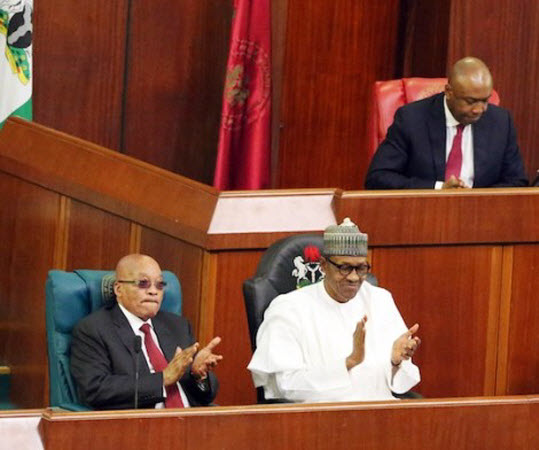There are no products in your shopping cart.
| 0 Items | £0.00 |

 SOUTH Africa's ruling African National Congress (ANC) remains divided about how best to rid itself of embattled president Jacob Zuma amid his refusal to resign and calls from opposition parties for an early general election.
SOUTH Africa's ruling African National Congress (ANC) remains divided about how best to rid itself of embattled president Jacob Zuma amid his refusal to resign and calls from opposition parties for an early general election.
Tainted by numerous corruption scandals, President Zuma is holding on to power after rejecting a request by his party’s senior officials to resign more than a week ago. On Monday this week, ANC senior officials met to finalise the departure of the president with vice president Cyril Ramaphosa, locked in confidential talks with President Zuma, as they seek a way forward.
Mr Ramaphosa, who was elected party leader is the president-in-waiting and many ANC members want him to take over immediately. At a party rally in Cape Town on Sunday to rapturous cheering, Mr Ramaphosa vowed to tackle the corruption that has tarnished President Zuma’s government.
After the rally, the ANC’s powerful 107-member national executive committee met at a hotel outside Pretoria on Monday afternoon. Theoretically, the committee could recall the president from office, although he would not be under any constitutional obligation to obey the order but if President Zuma refuses, he could be ousted via a parliamentary vote of no-confidence within days.
Mmusi Maimane, the leader of the opposition party Democratic Alliance, said: “We must proceed to the dissolution of parliament. Subsequent to that, we move on to an early election."
Political analyst Somadoda Fikeni said the ANC committee was split on what to do with President Zuma. He added that some members facing corrupt allegations while serving under President Zuma are not fighting for a principle or the ANC, as they are being governed by the basic instinct of self-preservation.
Mr Fikeni said: “They will strive for consensus but if that fails, it will go to a vote. The pressure is so much, it has to be the final decision for the ANC leadership and if they fail to do so, they will have surrendered the initiative.”
President Zuma’s presidency has been marred by corruption scandals, slow economic growth and record unemployment that has fuelled public anger. This stalemate over President Zuma’s departure has left Africa’s most developed economy in limbo, with a series of public events cancelled last week including Thursday’s State of the Nation address to parliament.
Last December, President Zuma’s hold over the ANC was shaken when his chosen successor, his former wife Nkosazana Dlamini-Zuma narrowly lost to Mr Ramaphosa in a vote to be the new party leader. Since then, the calls for his removal from office have grown louder as the number of scandals associated with the government grow.